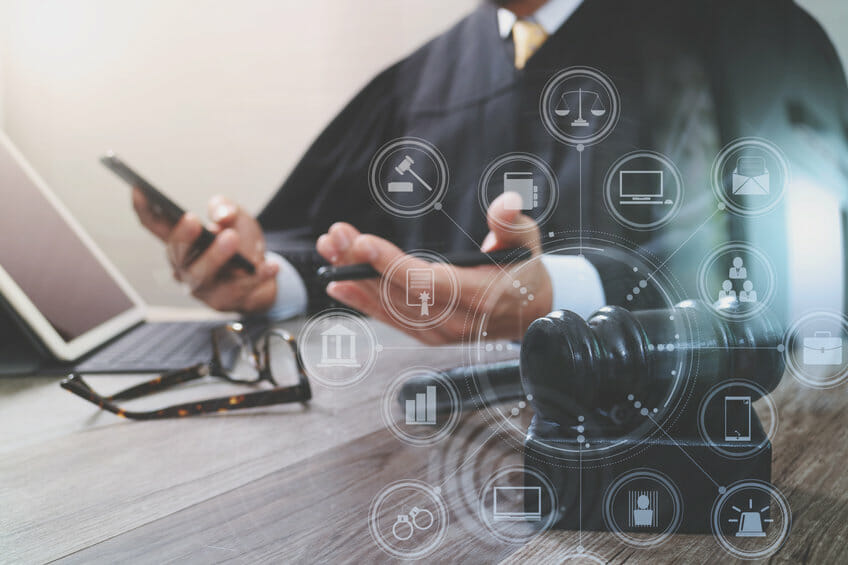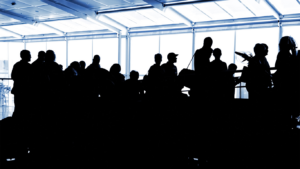Media sometimes exaggerates crime, highlighting only the more exciting or well-known cases that catch public interest. This sort of portrayal can possibly misrepresent views on how much and what kind of crimes occur, causing an increase in fear and worry within society. Also, the media’s portrayal of criminals – at times glorifying or demonizing them – can shape public perception towards those who commit offense as well as influence opinions about suitable penalties for such actions. This portrayal can affect jury biases and public support for legal reforms.
Portrayal of Crime and Criminals
Media generally presents a dramatic picture of crime, highlighting certain cases that are thrilling or have great significance and these are noticed by the public. This kind of portrayal can create an incorrect understanding about how frequent certain types of crimes happen in society, leading to increased fear among people believing they might become victims too. Furthermore, the image the media gives us about criminals – sometimes making them look attractive and other times showing them as monsters – has a strong impact on how we view offenders from a societal perspective and decide what is fair punishment for their actions. This portrayal can affect jury biases and public support for legal reforms.
Legal Dramas and Misconceptions
Television dramas and movies that are about criminal law can be entertaining but also cause misunderstandings regarding legal procedures and results. The shows usually squeeze complicated legal steps into dramatic storylines, possibly giving viewers wrong ideas about how court hearings really go or what difficulties a criminal lawyer and judge deal with. This kind of portrayal might make people expect cases to be solved quickly or justice to always happen for sure – things not matching up with the intricate nature of real-life law profession.
Role of Social Media and Public Opinion
In this time of social media, public viewpoints in criminal cases can spread and change quickly. Situations that are seen by many people online could impact discussions among the public, create stress for law enforcement groups and even affect legal procedures. Platforms for social media offer an area where there is open debate about legal decisions as well as examination from the public eye; sometimes these discussions have effects on court rulings or cause changes to laws themselves. But, the quickness of social media can also cause wrong information and preconceptions before everything is shown in court.
Media Coverage and Fair Trial Rights
When criminal cases get a lot of attention in the media, it may bring up worries about having a fair trial. Publicity before the trial can make possible jurors biased and that makes it hard to find people for the jury who are not already leaning one way or another. Also, cases that attract much public notice can cause pressure on lawyers and judges to give more importance to popular opinion compared with legal rules, potentially affecting due process guarantees. Maintaining a balance between the freedom of press and fairness of trial for defendants is a crucial issue in contemporary legal systems, demanding thoughtful contemplation from legal practitioners.
Educational Role of Media
Even with difficulties, the media has a teaching part too. It can tell people about legal rights, important court cases and changes being made in the law. Investigative journalism might uncover unfairness, improve openness in legal processes and back up social alteration. People who are experts in law and lawyers frequently participate with the media to give professional study and surroundings for understanding complicated legal matters. This helps the public comprehend the criminal law more deeply.
The Influence on Policy and Reform
Coverage of high-profile criminal cases by the media has the potential to shape public sentiment and push those responsible for making laws into bringing about legislative changes. Cases that emphasize wider injustices or loopholes in legal systems might trigger demands for modifications aiming at improving fairness, visibility, and answerability within the criminal justice system. Professionals in law along with groups who advocate could use the attention they get from media to support reforms that focus on social inequality issues, as well as increasing chances of obtaining justice for underprivileged communities.
The effect of the media on criminal law and how people see justice is deep and complex. Even though media attention can increase understanding about crucial legal matters, it might also create myths, exaggeration in crime depiction or affect the rights for fair trial. Legal experts such as attorneys have a vital part in dealing with the connection between media and criminal law. They should work towards fair coverage, safeguarding the rights of people involved in legal procedures, and enhancing knowledgeable public conversations regarding justice matters. Media’s influence on criminal law and how people see it is a changing part that legal education and reform will keep focusing on.




